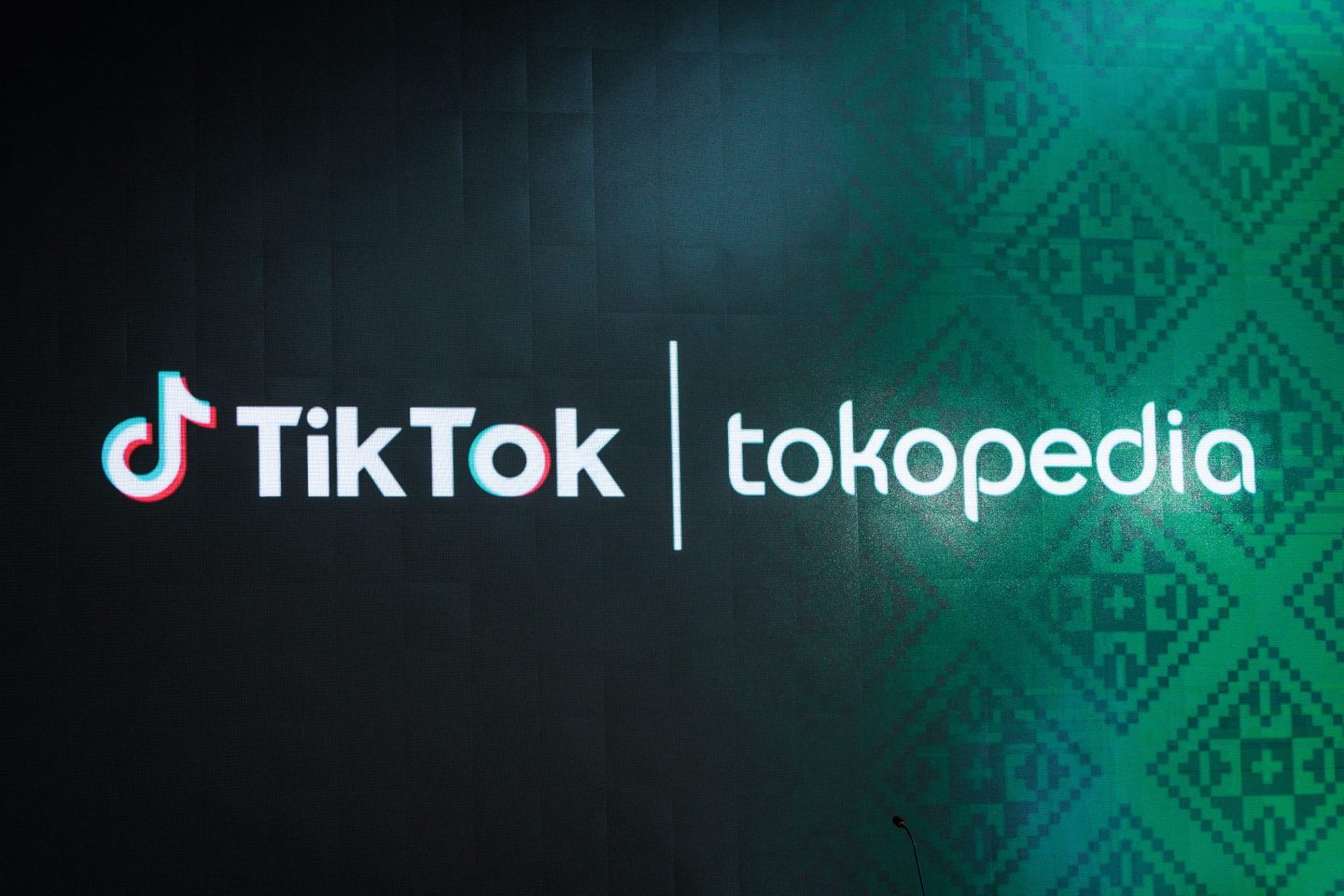TikTok really can’t catch a break with regulators. Yesterday, as expected, the European Commission launched a probe into the company’s failings on the content front—and now it looks like trouble continues to brew in Indonesia, too.
This time, the issue is TikTok Shop, the service’s push into online retailing that lets third parties sell their merchandise on the platform. Indonesia has long been key to TikTok’s e-commerce efforts. It’s the company’s second-biggest market outside the U.S., and it hosted an early pilot of TikTok Shop. Last October, Jakarta stunned TikTok and its peers by abruptly banning social media companies from conducting direct transactions within their platforms, apparently owing to predatory pricing (about which my colleague Jason Del Rey wrote entertainingly on Friday) and the negative effects on local stores.
A couple months later, TikTok said it had found the solution: buying three-quarters of the leading Indonesian e-commerce platform, Tokopedia, for $1.5 billion. The deal closed at the end of January, more than a month earlier than planned. So, with Tokopedia now handling TikTok Shop transactions, problem solved, right?
Nope. The new arrangement still allows users to buy stuff within TikTok in Indonesia, and the government—which said in December that it would keep a close eye on the TikTok-Tokopedia arrangement—is not happy. Business minister Teten Masduki said TikTok Shop was “in practice … still integrated with social media,” meaning TikTok was still violating the law. If nothing is done, he added, “the government’s authority is undermined,” Reuters reported.
Now it’s over to the Indonesian trade ministry to figure out what to do. But if that Tokopedia partnership doesn’t solve the problem, well, $1.5 billion is a lot to spend on a failed gambit.
As for TikTok’s European troubles, enforcers of the new Digital Services Act have made TikTok the subject of their second formal investigation under the online-content law—the first involves X. The Commission’s concerns around TikTok’s addictiveness and opacity are largely to do with child safety but also relate to radicalization. TikTok’s line on this: “We’ll continue to work with experts and industry to keep young people on TikTok safe, and look forward to now having the opportunity to explain this work in detail to the Commission.” Good luck with that.
More news below—and do take a moment to savor the irony in Saudi Arabia telling top Chinese tech firms like Alibaba and SenseTime that they have to invest in the Saudi tech sector to win market-expanding deals there. “They want your company and engineers to train their own talent,” a Chinese consultant complained to the Financial Times. That definitely rings a gong.
David Meyer
Want to send thoughts or suggestions to Data Sheet? Drop a line here.
NEWSWORTHY
Wyze security disaster. The security camera outfit Wyze has admitted that 13,000 customers were able to see through other customers’ cameras in a recent incident. As The Verge reports, CEO David Crosby (not to be confused with the musician, who passed away a year ago) said last week that Wyze only knew of 14 such people at the time. The incident occurred as Wyze was bringing its cameras back online after an AWS outage. Other people’s video feeds showed up in customers’ Events tab, and over 1,500 tapped to enlarge them.
Microsoft invests in Spain. Days after it announced a $3.5 billion investment in Germany, Microsoft has also revealed a massive investment of $2.1 billion in Spain, Reuters reports. Again, the aim is to build out the company’s AI and cloud infrastructure.
Walmart buys Vizio. Walmart is shelling out $2.3 billion to buy Vizio, the TV maker. Per CNBC, the rationale is that Vizio’s SmartCast operating system will be able to boost the ad side of the Walmart Connect media business, which enjoys high profit margins.
ON OUR FEED
“Progress is good, and the patient seems to have made a full recovery, with no ill effects that we are aware of. Patient is able to move a mouse around the screen by just thinking.”
—Elon Musk provides an update on Neuralink’s first implantation in the brain of a human patient. Details are scarce though, and far from being anything other researchers can peer-review. Scientists have been using brain implants to allow cursor control for several years now.
IN CASE YOU MISSED IT
FBI and U.K.’s Crime Agency say they’ve disrupted ransomware giant LockBit, one of the most prolific hacker groups of all time, by Bloomberg
Stanford VR study brings seniors ‘back to life’ with memories and virtual experiences, by the Associated Press
Sanofi CEO: AI promises a great era of drug discovery that could fundamentally change medicine–but only if we allow it to deliver, by Paul Hudson (Commentary)
Voice actors face a reckoning in the age of AI—but some are leaning into the technology to give themselves an edge, by the Associated Press
BEFORE YOU GO
Chip factory delays. More news on the U.S. onshoring-chip-production drive I wrote about yesterday. The New York Times has an interesting piece on how many chipmakers are slowing their plans to start churning out silicon at U.S. plants, with the likes of TSMC blaming everything from construction complexity to uncertainty about financial incentives for their delays. Emily Kilcrease of D.C. think tank Center for a New American Security: “Nothing has failed yet, but we’re going to have to see some progress and those factories actually coming online in the next few years for the [Biden administration’s] program to be considered a success.”
This is the web version of Data Sheet, a daily newsletter on the business of tech. Sign up to get it delivered free to your inbox.












